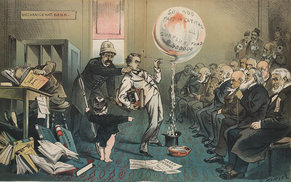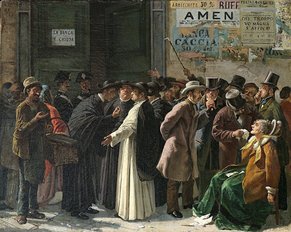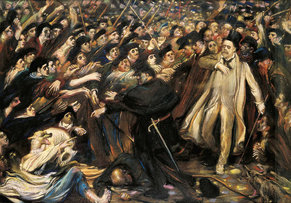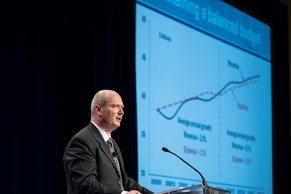
Empire Building
Insiders of a company who try to make the company big as opposed to profitable. For example, a CEO of a bank may benefit from the prestige of taking over other banks to become a bigger bank even if this ruins the bank's prospects of becoming profitable. This can also occur at every level of a company whereby managers seek to make their teams bigger even if this is simply inefficient. Likewise, the bureaucrats of a government tend to try to continually grow the government such that taxation eventually becomes burdensome and oppressive.Information Asymmetry
Agency costs are mostly caused by information asymmetry between the principle and agent. Generally speaking, the agent has far more information than the principle such that the principle completely depends on the agent. For example, the CEO of a bank that proposes an expensive merger to shareholders may state that it is key to competitiveness and that it will save $50 billion in shared operational efficiencies over 10 years. The board of directors and shareholders may not be able to determine if this advice is good or bad because they lack familiarity with the bank's operations.Secrecy
Agents may intentionally hide information from principles. For example, a team that only reports good news to management and hides bad news where possible. This may cause risks to go unmanaged and problems to go unsolved at a cost to principles.Perverse Incentives
Perverse incentives are rewards for behaviors that are irrational and costly. For example, a CEO that will get a big payout in the event that another firm acquires the company at any price. This may give the CEO incentive to lower the stock price with poor results to attract buyers. This may seem unlikely but some CEOs have a pattern of lowering stock prices at multiple firms that are eventually acquired by larger firms. This looks great on their resume as they can state the firm was purchased by a larger and more prestigious firm making it look like they created a desirable business when all they really did was lower the stock price by destroying value.Moral Hazard
An agent who is rewarded if risk taking reaps gains but not penalized if a risk results in losses. For example, an investment advisor who receives 20% of the gains of a client but incurs no cost if they lose money. This is analogous to a gambler who bets with someone else's money who shares in wins but not losses.Risk Mismatch
Agents who are motivated to reduce their own risks without regard to the interests of the principle. For example, a doctor who is hesitant to perform a procedure that often results in malpractice lawsuits even if it is in the best interests of the patient's health.Hoarding
Agents that hoard resources that belong to the principle. For example, a firm that generates huge amounts of cash that doesn't reinvest or pay this cash to investors. This can occur simply because agents view the cash as theirs or because they see it as insurance that increases job security.Multiple Principles
Where there are multiple principles they may be ineffective at governing the actions of agents. For example, multiple owners of a restaurant who give the restaurant manager conflicting instructions. There is also potential for conflict between principles that can cause irrational decisions and policy that are extremely costly.Dominant Principles
A dominant principle who directs agents in ways that aren't beneficial to other principles. For example, a shareholder who owns 30% of a firm who directs a CEO to acquire another company the shareholder owns.Office Politics
Where there are multiple agents, such as the employees of a firm, they tend to compete with a political process that can be irrational and costly. For example, two IT managers who build similar software systems in a struggle for control of business processes at a high cost to shareholders.Self-Dealing
An agent that directly or indirectly does deals with themself while representing a principle. For example, a mayor of a city who sells city land to a firm that they own.Rent Seeking
Rent seeking is the pursuit of reward without adding any value. For example, an employee who is fully engaged in political struggles who never produces work of value.Free Riding
Free riding occurs when those who benefit from goods do not pay for them. For example, employees benefit from a luxurious office building in a prestigious location but do not pay for its costs. Where principles fail to govern the behavior of agents, the profits of an organization can be completely consumed with this type of spending.Paternalism
An agent who treats the principle as a child who needs protection and can't make their own decisions. For example, a doctor who doesn't feel a need to explain treatment options because they assume the patient wouldn't understand anyway.Cronyism
An agent such as a politician who affords benefits to friends and family at the cost of citizens.Due Diligence
An agent who fails to provide an appropriate level of care, judgement and investigation in representing a principle. For example, a real estate agent who fails to warn a buyer that a factory will be constructed across the street from a residential property beginning next month.Gaming The System
An agent who takes advantage of gaps in a system. For example, a customer service representative who notices that customers aren't asked to rate their satisfaction if they cancel their account who encourages angry customers to cancel in order to boost their customer satisfaction score.Unsustainable Gains
An agent who is rewarded for short term results such that they may sell out the future. For example, the CEO of a luxury brand who licenses out the brand to low quality producers for a quick one time profit that helps them to achieve a quarterly target and bonus. This may result in a significant loss of brand equity as the brand name gets printed on large volumes of low quality merchandise.Fraud
The risk that the agent will commit fraud. For example, a CEO who misstates profits in order to obtain a performance reward.Destructive Behavior
At an extreme, an agent may be willing to destroy an entire organization, society or planet as long as this will not personally impact themselves. For example, a CEO who dumps toxic waste on the grounds of a factory to avoid an immediate disposal cost of $5 million that would reduce their bonus. This may create $5 billion in future liability, compliance and clean up costs that are only likely to occur long after the CEO has departed.Overview
Agents are responsible for representing the interests of the principle. Where they do not do this in good faith, an agency cost occurs. Any costs incurred by the principle to prevent this from happening are also agency costs.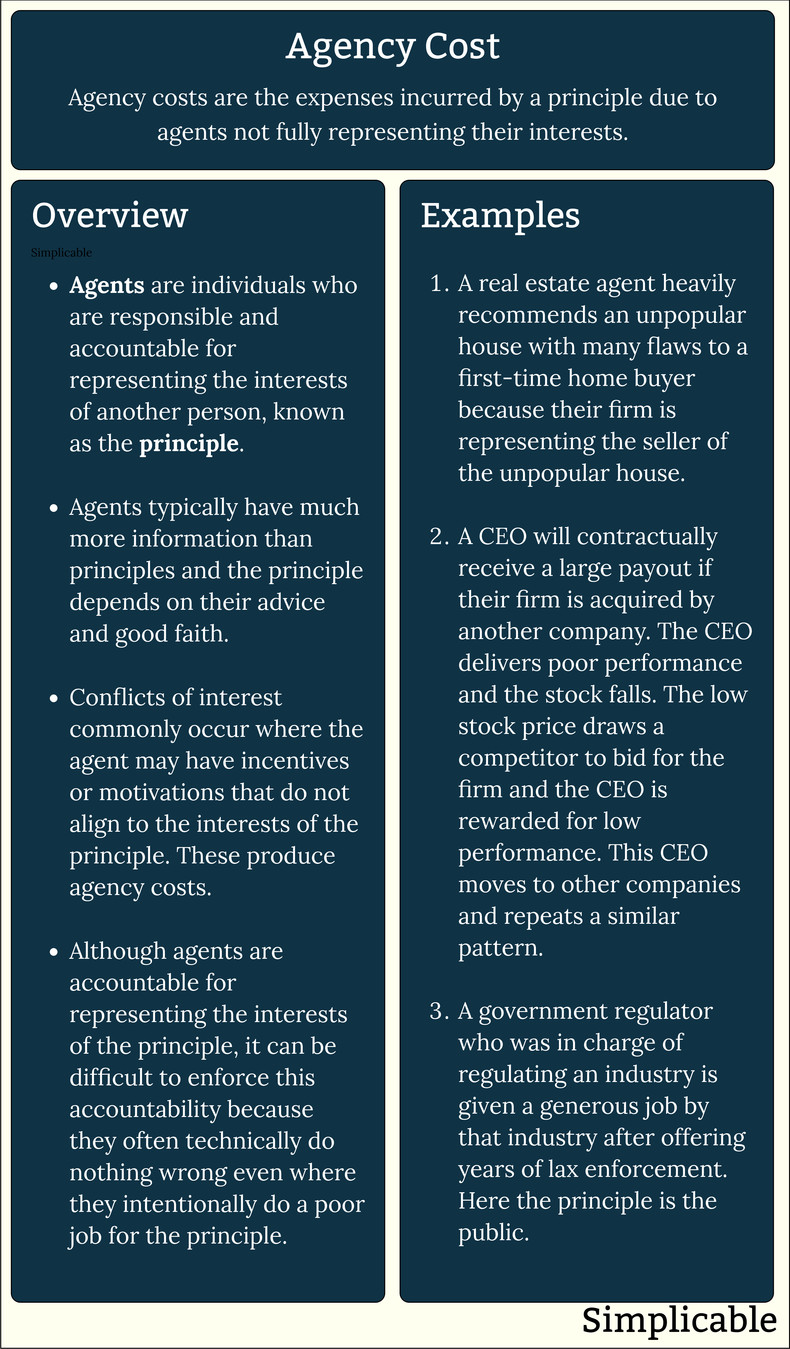
Notes
The cost that a principle incurs to monitor and govern the actions of agents is also an agency cost. For example, the cost of the Board of Directors of an organization is an agency cost.| Definition: Agency Cost | ||
Type | ||
Definition | An inefficiency that is caused by the differences in the motivations and access to information of principles and agents. | |
Related Concepts | ||



